LINUS YANG
What’s it to Ya?
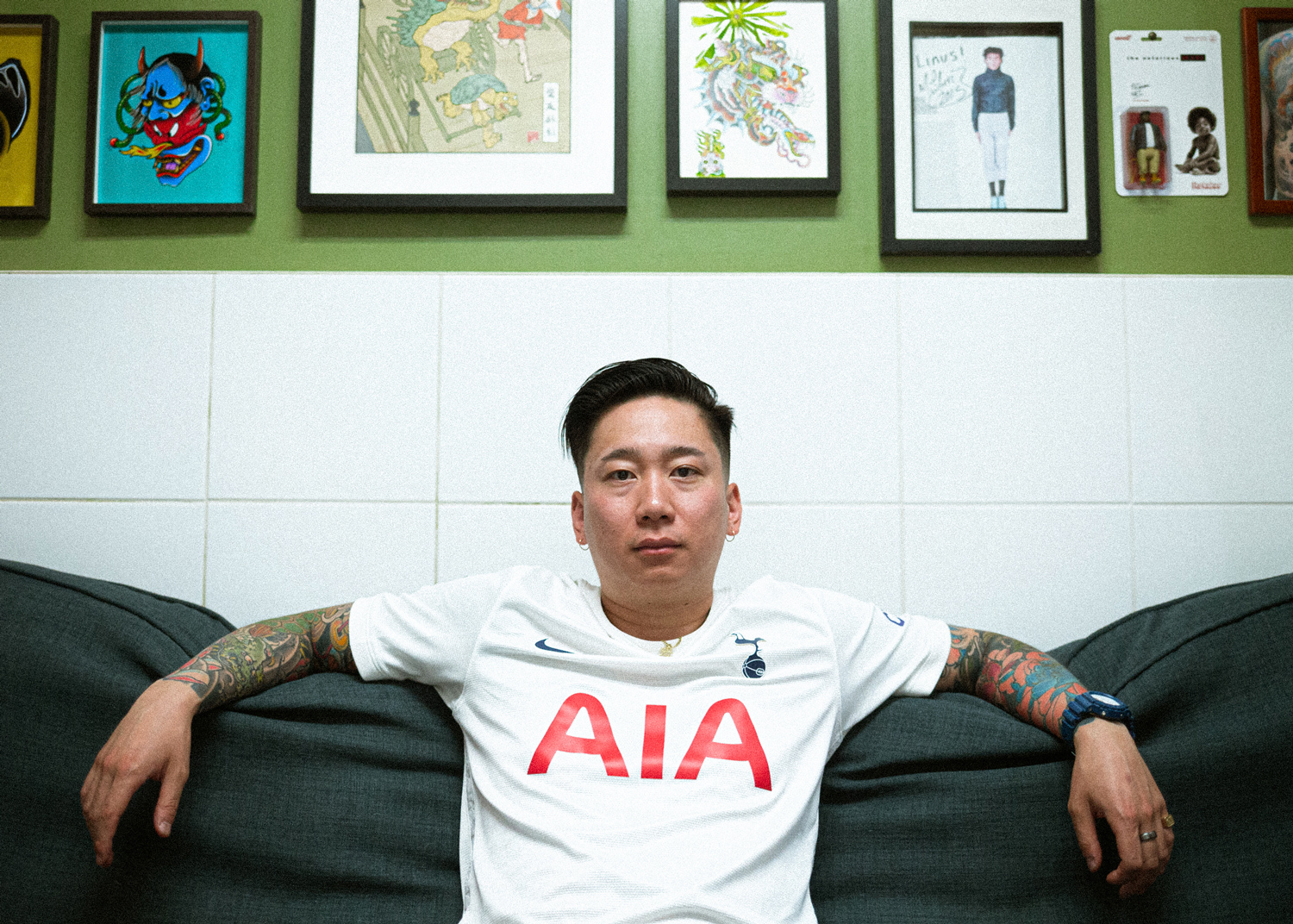
Interview: Jason Gisoo Kim
Photos: Ararsa Kitaba
Linus Yang is a tattoo artist based at BURNING MONK TATTOO in Montréal. His love for Tottenham began in 2015, when Son Heung-Min signed for the club—a moment that, for many Koreans, made Spurs the obvious team to follow. Linus also happens to be a goalkeeper, and as the saying goes, keepers tend to be a little different. Maybe that touch of madness is what feeds his creativity. From facing down shots to sitting under the needle, he’s never been one to shy away from a bit of pain.
Where were you born?
I was born in Nara, Japan. My parents moved back to Seoul after I was born in Japan. My mom was visiting my grandparents, who lived in Japan. They left Seoul when I was two and moved to Montréal. But we did a bit of back and forth between MTL and Seoul, and my dad was looking for work. I grew up speaking Korean and Japanese. I spoke with my dad in Korean and my mom in Japanese. After my father had left, I only spoke Japanese at home and English and French at school.
Did you feel connected to other Koreans in Montréal?
There was always a disconnect between me and Koreans in Montréal. I didn’t connect with them on a cultural level, and I never really learned the language. I don’t watch Korean shows, and I don’t listen to the music. I don’t really understand the culture. I was too Canadian for most Koreans. The only thing that connected us was the love of the Korean Football Association, and for Korean players making it in Europe.
When did you start playing and where?
I started playing at 8 or 9 years old for my local club, NDG Panthers. In 2002, I was in Japan and Korea, and it was a frenzy. It stuck with me right away. My family bought me a Korea kit and told me to go play, so I did.
What position do you play? And what drew you to it?
GK, I was never afraid of the ball. No one wants to go in nets for gym class, so I always did. At the time, I was already snowboarding and mountain biking, so I wasn’t afraid to jump or get hit. I always loved hockey goalies because of their equipment. Soccer players don't have that much gear, but the goalies have a little more with the gloves.
Where were you born?
I was born in Nara, Japan. My parents moved back to Seoul after I was born in Japan. My mom was visiting my grandparents, who lived in Japan. They left Seoul when I was two and moved to Montréal. But we did a bit of back and forth between MTL and Seoul, and my dad was looking for work. I grew up speaking Korean and Japanese. I spoke with my dad in Korean and my mom in Japanese. After my father had left, I only spoke Japanese at home and English and French at school.
Did you feel connected to other Koreans in Montréal?
There was always a disconnect between me and Koreans in Montréal. I didn’t connect with them on a cultural level, and I never really learned the language. I don’t watch Korean shows, and I don’t listen to the music. I don’t really understand the culture. I was too Canadian for most Koreans. The only thing that connected us was the love of the Korean Football Association, and for Korean players making it in Europe.
When did you start playing and where?
I started playing at 8 or 9 years old for my local club, NDG Panthers. In 2002, I was in Japan and Korea, and it was a frenzy. It stuck with me right away. My family bought me a Korea kit and told me to go play, so I did.
What position do you play? And what drew you to it?
GK, I was never afraid of the ball. No one wants to go in nets for gym class, so I always did. At the time, I was already snowboarding and mountain biking, so I wasn’t afraid to jump or get hit. I always loved hockey goalies because of their equipment. Soccer players don't have that much gear, but the goalies have a little more with the gloves.
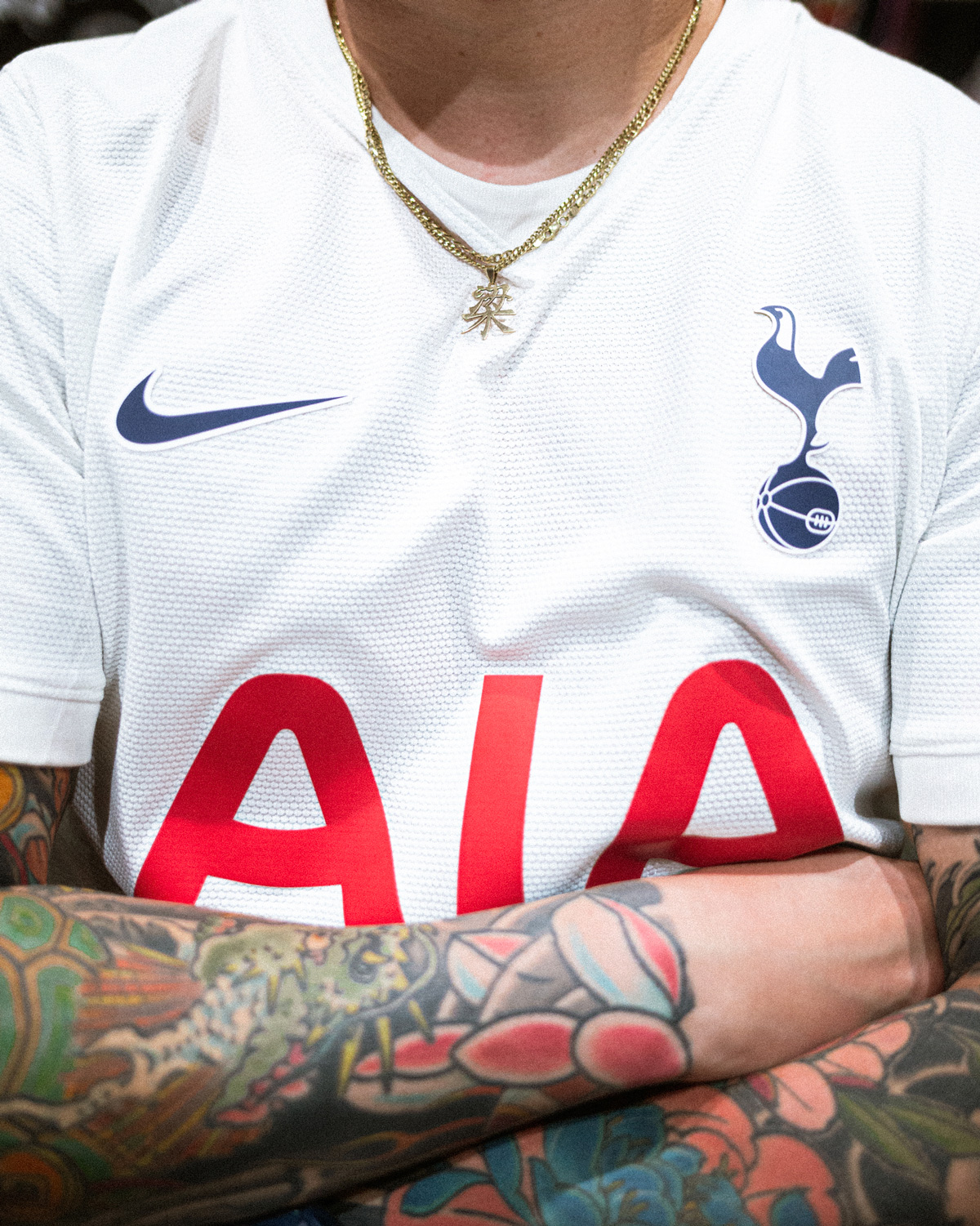
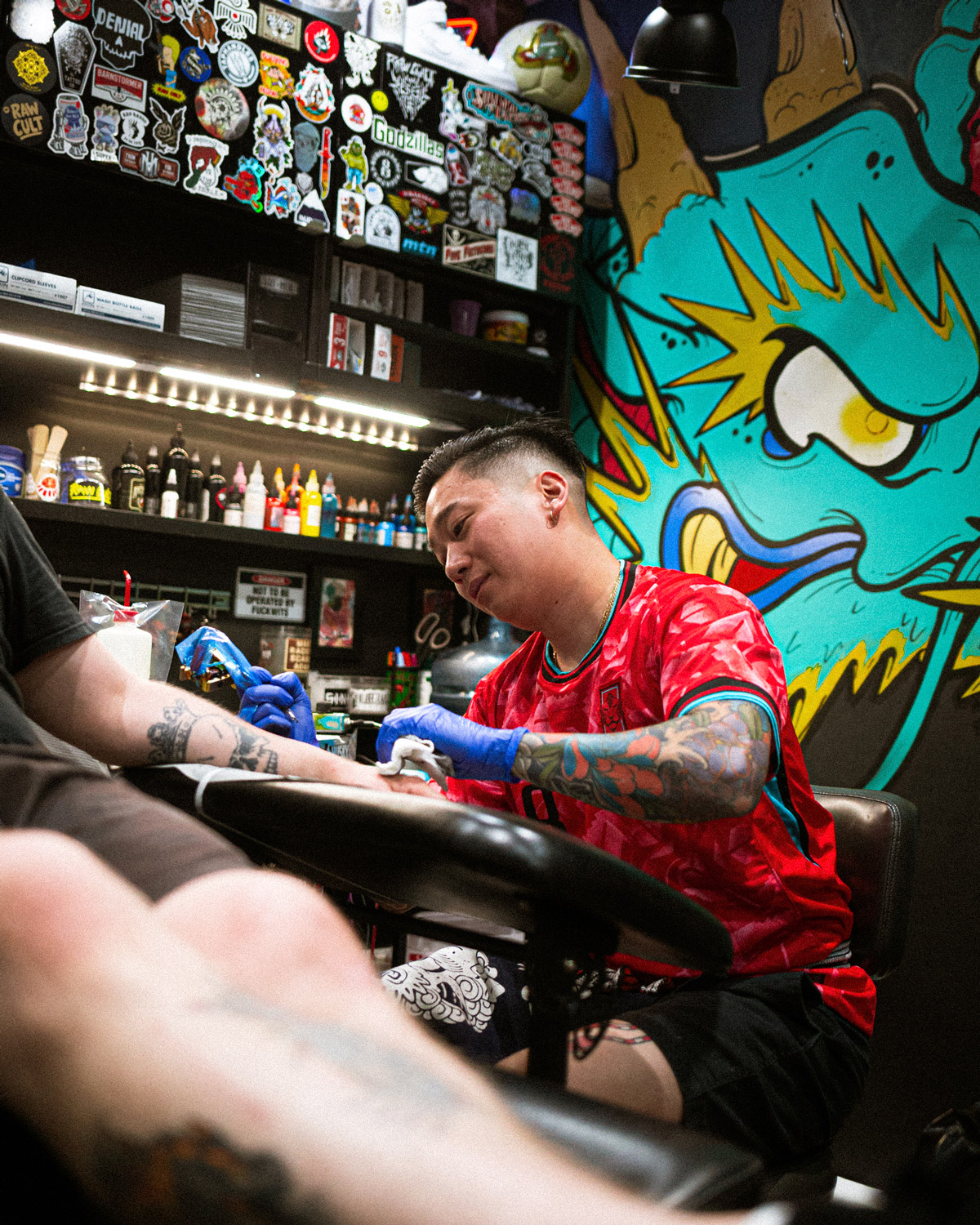
When did you get your first tattoo?
When I was 19, I got Chinese motifs (snake and dragon) for my mom and sister, respectively. You have to go with your family first. It should soften the blow.
How did your mother react to your first tattoo?
It was bad. I didn’t get another one for another 5-6 years. I got the “I’m not mad, I'm disappointed” treatment from my mother. That sucked. But she also accepted the reality because she understood that the tattoo was done and permanent. Every time I got a new tattoo, I got the same treatment.
When did you get into tattooing, and what does it mean to you?
My first influence was rock and roll. I was introduced to pop-rock and Travis Barker. It was rare to see celebrities heavily tattooed. I wanted to work in music because I grew up a Jehovah’s Witness. When I left the religion, I decided to pursue it. As a Jehovah’s Witness, tattoos were banned, but I was always curious about them, and the imagery always stuck with me.
After graduating from Dawson College (CEGEP, post-secondary education before university), I went to the shop where I got my first tattoo, Burning Monk, and asked for a job. They told me my drawings were shit and told me to come back when I got better. I decided to go to art school, got my degree and came back with a proper portfolio, and they gave me a job in 2018.
How would you describe your style, or is it still evolving?
It’s still evolving for sure. If anyone thinks they know what their style is before 10 years (of tattooing), they’re wrong. You are still learning and trying to figure it out. It takes time.
In terms of “style,” it would be Japanese art. All the old Korean artists are trained in Tokyo. They were brought to Japan and forced Koreans to do that style. Japanese colonialism burned a lot of Korean art, and now there’s a gap in that history. When I was in university, my thesis was on Korean art that had been destroyed.
When I was 19, I got Chinese motifs (snake and dragon) for my mom and sister, respectively. You have to go with your family first. It should soften the blow.
How did your mother react to your first tattoo?
It was bad. I didn’t get another one for another 5-6 years. I got the “I’m not mad, I'm disappointed” treatment from my mother. That sucked. But she also accepted the reality because she understood that the tattoo was done and permanent. Every time I got a new tattoo, I got the same treatment.
When did you get into tattooing, and what does it mean to you?
My first influence was rock and roll. I was introduced to pop-rock and Travis Barker. It was rare to see celebrities heavily tattooed. I wanted to work in music because I grew up a Jehovah’s Witness. When I left the religion, I decided to pursue it. As a Jehovah’s Witness, tattoos were banned, but I was always curious about them, and the imagery always stuck with me.
After graduating from Dawson College (CEGEP, post-secondary education before university), I went to the shop where I got my first tattoo, Burning Monk, and asked for a job. They told me my drawings were shit and told me to come back when I got better. I decided to go to art school, got my degree and came back with a proper portfolio, and they gave me a job in 2018.
How would you describe your style, or is it still evolving?
It’s still evolving for sure. If anyone thinks they know what their style is before 10 years (of tattooing), they’re wrong. You are still learning and trying to figure it out. It takes time.
In terms of “style,” it would be Japanese art. All the old Korean artists are trained in Tokyo. They were brought to Japan and forced Koreans to do that style. Japanese colonialism burned a lot of Korean art, and now there’s a gap in that history. When I was in university, my thesis was on Korean art that had been destroyed.
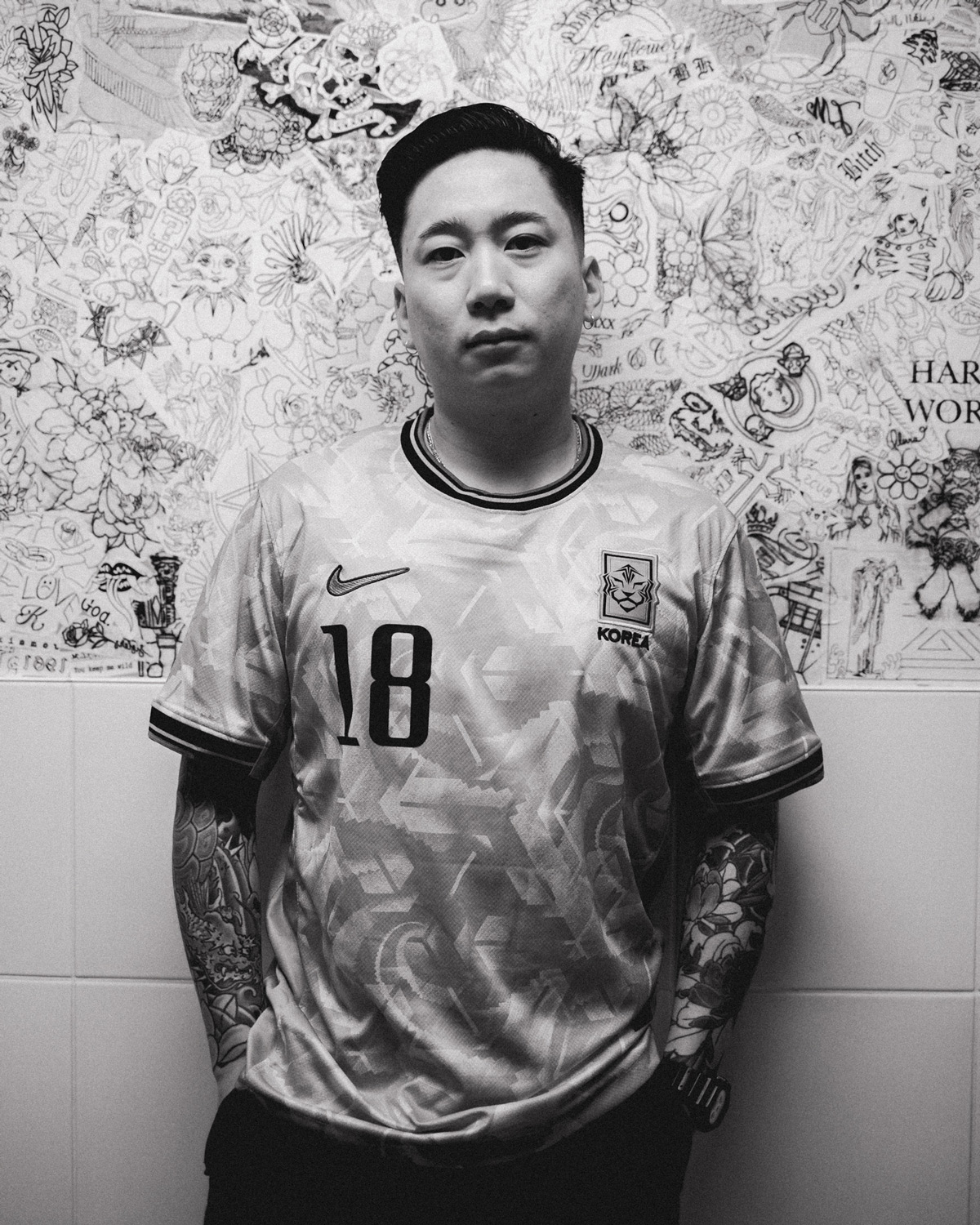
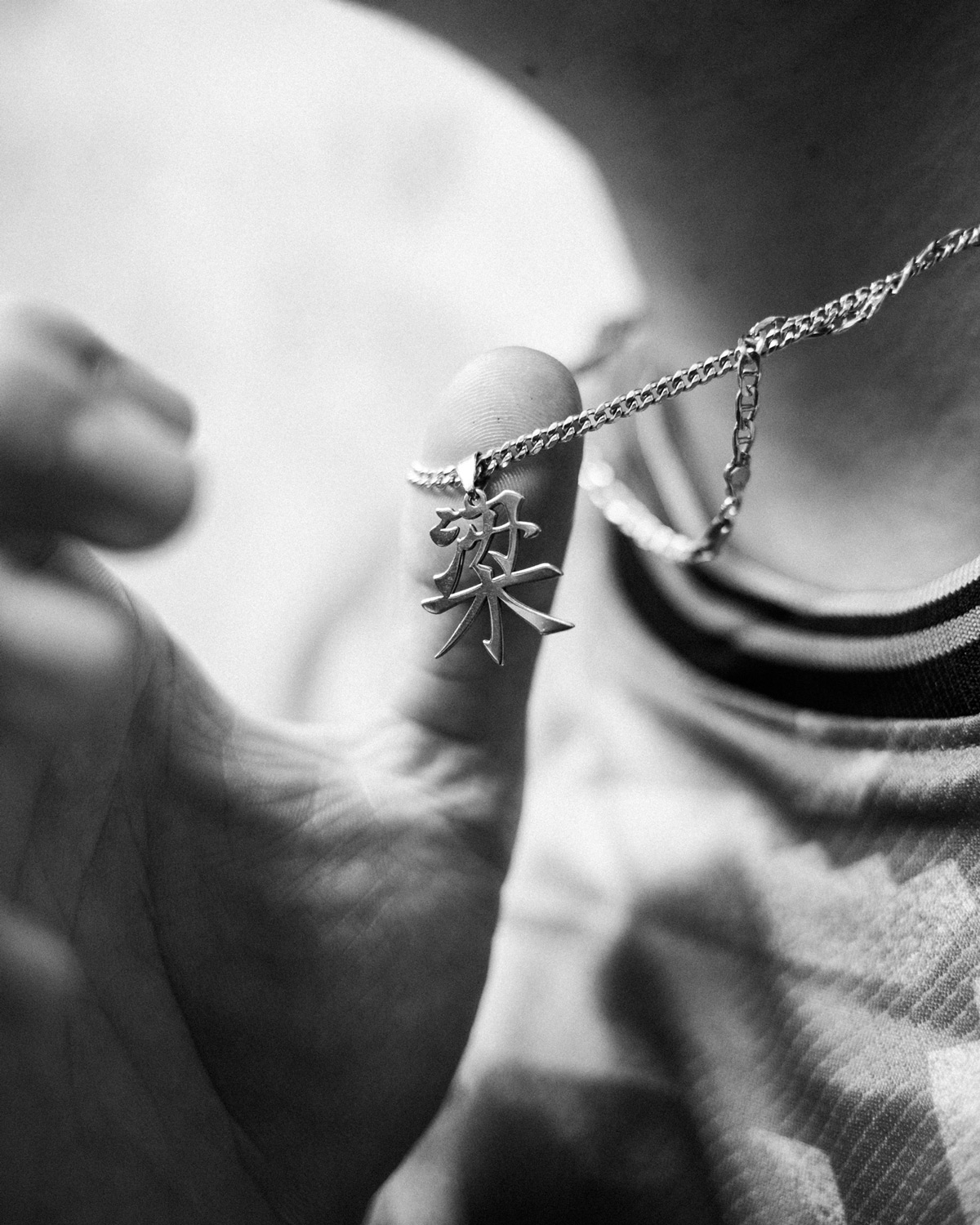
Is there any creative connection between tattooing and playing football?
It’s hard to connect it, but the only example I can think of are the iconic tattoos on certain players. Certain motifs stand out forever like Zlatan’s lion, Messi’s soccer ball or any Beckham tattoo. I have people come into the shop asking for tattoos similar to a players’. But I also learned that football connects everyone. I was at a tattoo convention in Vancouver during the Champions League Final. While at my stall, I was streaming the game on my iPad, and random people started coming and watching it with me. Football became an icebreaker with fellow tattoo artists and enthusiasts. That’s when I realized it doesn’t matter what you do, or who you are. Football truly does bring people together.
When and why did you become a Tottenham supporter?
Because of Son, when he made that move from Bayer Leverkusen in 2015. I read that Son’s Tottenham jersey was the most sold kit in Korea as a result of the move. Which makes sense, he went to a Premier League club that already has a huge presence in Korea.
What did you know about Tottenham?
I just knew they were another club in London. I didn’t know much about them beyond that.
What was it about the club that attracted you?
I think I just bought into the club. Every season, it feels like we’re promised a league title when we get managers, and we’re like, “this is our saviour.” Harry Redknapp, Mauricio conducive, Jose Mourinho, Antonio Conte and even with Ange Postecoglou. This is also a club that has produced and scouted tremendous talent and was home to iconic players: Luka Modric, Gareth Bale, Jermaine Defoe, Jan Vertonghen, Toby Alderweireld, and Harry Kane.
But I also admired and loved the atmosphere of White Hart Lane, and then the vibe during the brief period at Wembley. And now the new stadium is considered one of the best venues with the best atmosphere.
It’s hard to connect it, but the only example I can think of are the iconic tattoos on certain players. Certain motifs stand out forever like Zlatan’s lion, Messi’s soccer ball or any Beckham tattoo. I have people come into the shop asking for tattoos similar to a players’. But I also learned that football connects everyone. I was at a tattoo convention in Vancouver during the Champions League Final. While at my stall, I was streaming the game on my iPad, and random people started coming and watching it with me. Football became an icebreaker with fellow tattoo artists and enthusiasts. That’s when I realized it doesn’t matter what you do, or who you are. Football truly does bring people together.
When and why did you become a Tottenham supporter?
Because of Son, when he made that move from Bayer Leverkusen in 2015. I read that Son’s Tottenham jersey was the most sold kit in Korea as a result of the move. Which makes sense, he went to a Premier League club that already has a huge presence in Korea.
What did you know about Tottenham?
I just knew they were another club in London. I didn’t know much about them beyond that.
What was it about the club that attracted you?
I think I just bought into the club. Every season, it feels like we’re promised a league title when we get managers, and we’re like, “this is our saviour.” Harry Redknapp, Mauricio conducive, Jose Mourinho, Antonio Conte and even with Ange Postecoglou. This is also a club that has produced and scouted tremendous talent and was home to iconic players: Luka Modric, Gareth Bale, Jermaine Defoe, Jan Vertonghen, Toby Alderweireld, and Harry Kane.
But I also admired and loved the atmosphere of White Hart Lane, and then the vibe during the brief period at Wembley. And now the new stadium is considered one of the best venues with the best atmosphere.
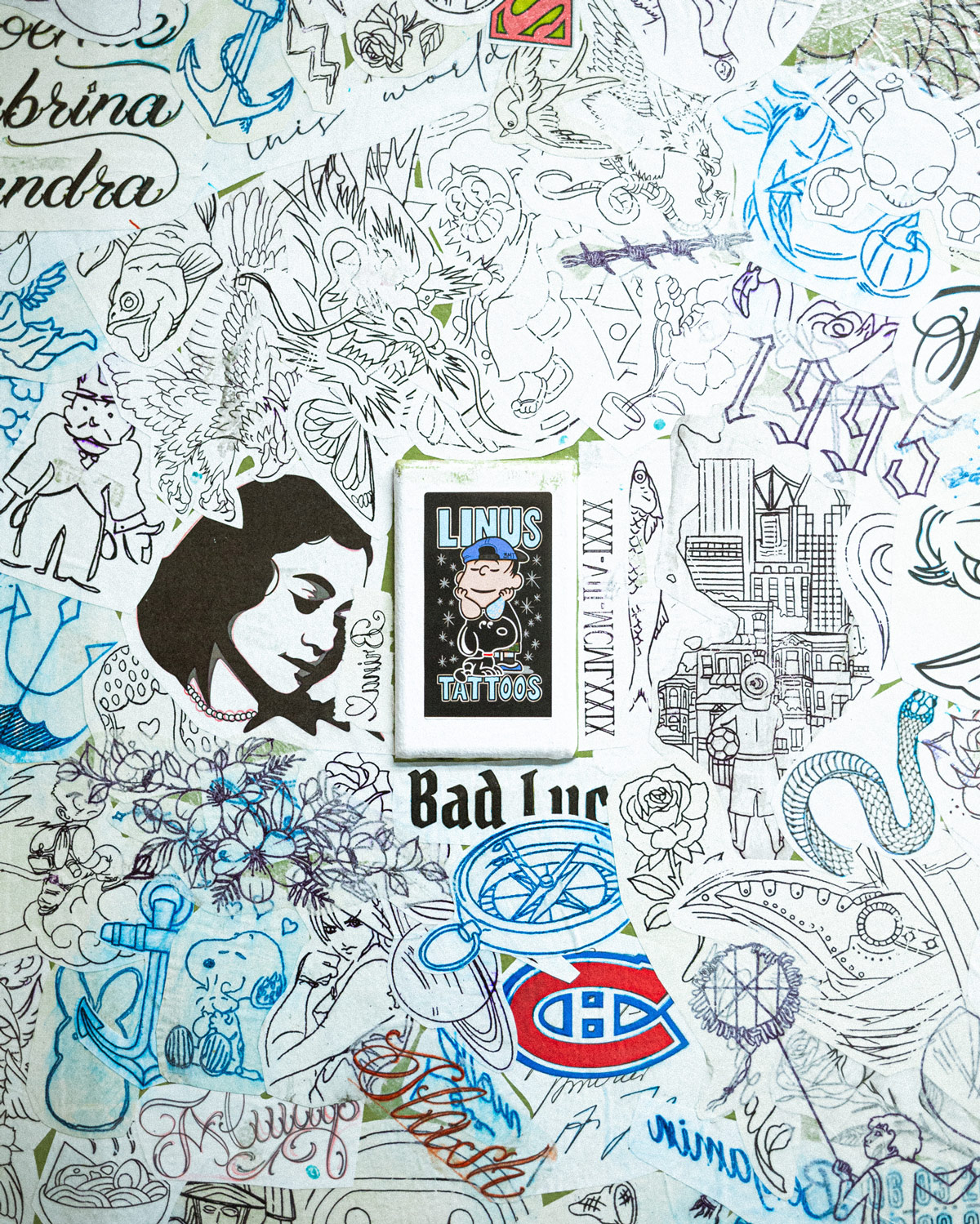
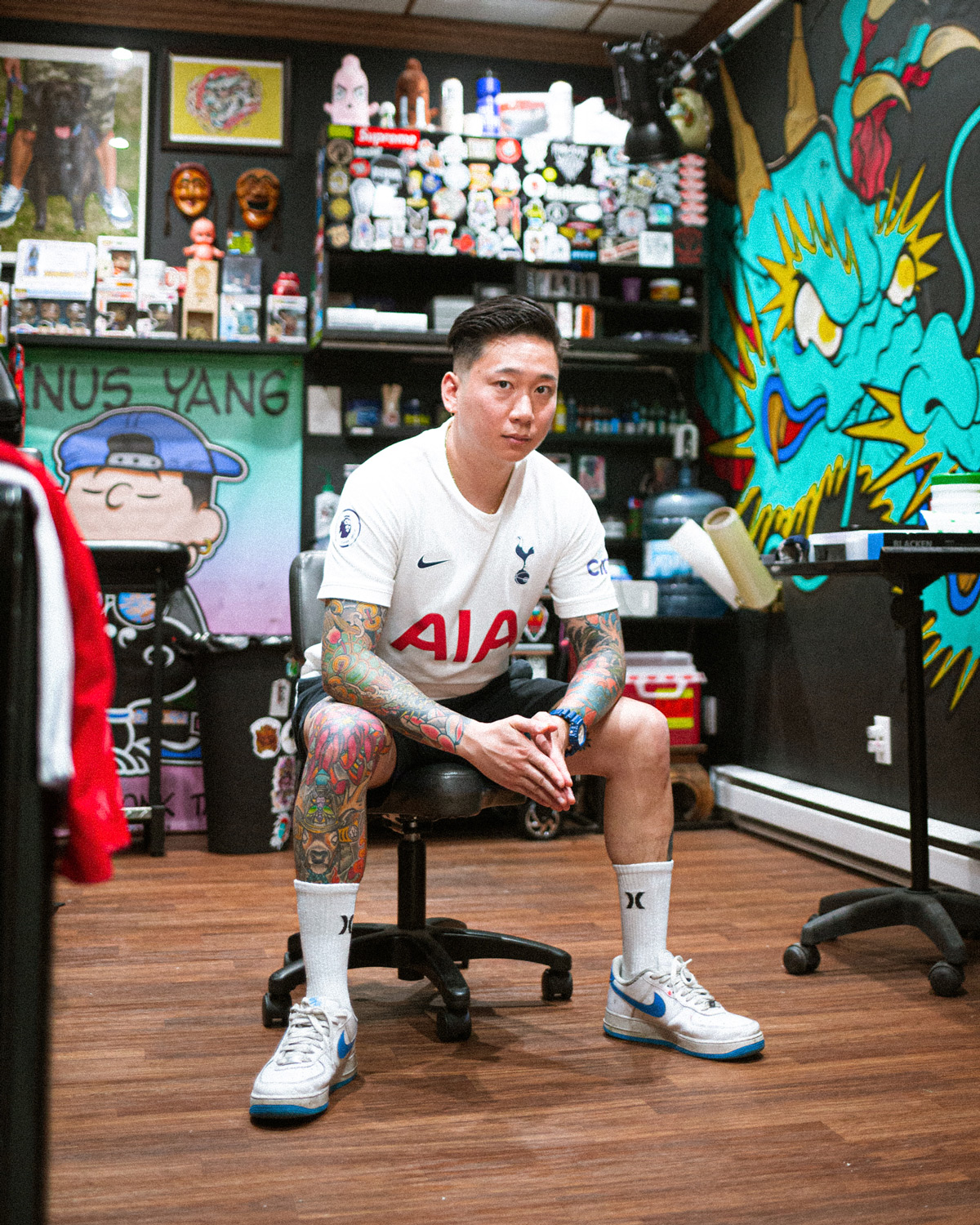
As a Korean, how much does Son Heung-Min mean to you?
You have to take pride that a Korean made it to that level, even if you had no part in his development. It’s the same way that Egyptians take pride in seeing Mohamed Salah at Liverpool. It’s about representation and that someone is representing you at the highest level. Players like Son and Salah are their country’s best exports.
Park Ji-Sung played at Manchester United, so why not become a Man U supporter?
I was too young, so I couldn’t really follow, and I was in elementary school. So I was focused on studies, and it was hard to watch Premier League games on TV at the time. There were no streaming services, and cable only showed North American sports. I only knew about Park Ji-Sung and Manchester United through my cousin.
Was your cousin a big influence on your love for football?
Yeah, definitely. He’s the one that got me into it. On Saturdays, I would go to my aunt's place and it was always soccer. You may have triggered core memories because come to think of it, he gaslit me into liking Kahn, and then gaslit me into liking Casillas. Also, he could put me in net and shoot at me!
What does it mean to you to see Koreans perform at the highest levels in Europe?
Koreans have a lot of pride. As a smaller nation between China and Japan, we didn’t have a large economy. Instead, we focused on discipline and education. It shows in our football and the players who play in Europe. As an immigrant, you studied first, and then you can go play. Even when I was on a team as a kid, if I didn’t finish my studies, my mom wouldn’t let me go to practice or games. I missed a lot of games. To go back to the question, it’s super impressive. In terms of our physicality, we don’t have the same population pool as China, where there are more athletic people. Yet Japan and Korea are the footballing powers in Asia. It goes back to discipline and making it work with less, especially with Korea, since Japan has more money.
How has growing up in Montréal influenced your creative and footballing background?
We’re so fortunate to have so much art everywhere. When you walk down the street, you see graffiti and stickers everywhere. We have Mural Fest, Jazz Fest, all the festivals. We’re surrounded by art all the time. I think we (Montréalers) take it for granted. For football, I grew up in NDG and went to high school in Montréal Nord. I played with every nationality there. I learned that every one has a different style of play. To be a creative person who plays soccer in Montreal is blessed.
You have to take pride that a Korean made it to that level, even if you had no part in his development. It’s the same way that Egyptians take pride in seeing Mohamed Salah at Liverpool. It’s about representation and that someone is representing you at the highest level. Players like Son and Salah are their country’s best exports.
Park Ji-Sung played at Manchester United, so why not become a Man U supporter?
I was too young, so I couldn’t really follow, and I was in elementary school. So I was focused on studies, and it was hard to watch Premier League games on TV at the time. There were no streaming services, and cable only showed North American sports. I only knew about Park Ji-Sung and Manchester United through my cousin.
Was your cousin a big influence on your love for football?
Yeah, definitely. He’s the one that got me into it. On Saturdays, I would go to my aunt's place and it was always soccer. You may have triggered core memories because come to think of it, he gaslit me into liking Kahn, and then gaslit me into liking Casillas. Also, he could put me in net and shoot at me!
What does it mean to you to see Koreans perform at the highest levels in Europe?
Koreans have a lot of pride. As a smaller nation between China and Japan, we didn’t have a large economy. Instead, we focused on discipline and education. It shows in our football and the players who play in Europe. As an immigrant, you studied first, and then you can go play. Even when I was on a team as a kid, if I didn’t finish my studies, my mom wouldn’t let me go to practice or games. I missed a lot of games. To go back to the question, it’s super impressive. In terms of our physicality, we don’t have the same population pool as China, where there are more athletic people. Yet Japan and Korea are the footballing powers in Asia. It goes back to discipline and making it work with less, especially with Korea, since Japan has more money.
How has growing up in Montréal influenced your creative and footballing background?
We’re so fortunate to have so much art everywhere. When you walk down the street, you see graffiti and stickers everywhere. We have Mural Fest, Jazz Fest, all the festivals. We’re surrounded by art all the time. I think we (Montréalers) take it for granted. For football, I grew up in NDG and went to high school in Montréal Nord. I played with every nationality there. I learned that every one has a different style of play. To be a creative person who plays soccer in Montreal is blessed.
